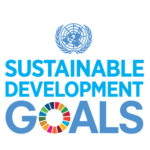Why diversity, disruption, and innovation in science matter
“We’ve heard many times that ‘business-as-usual’ is over. But we hear less about what will take its place. I think the world urgently needs disruptors”
#CIATforward Visions of a sustainable food future
André Zandstra, Head of Partnerships and Communications
Why diversity, disruption, and innovation in science matter
CIAT’s impacts over the last 50 years stem from a broad multidisciplinary approach, the thoughtful involvement of partners, and a keen focus on impact. But what does this really mean for the incomes of producers, the budgets of consumers, and the environment at large? Firstly, with our headquarters in Latin America, we have a test bed for the rapid assessment of new crops, practices, and approaches to tackling huge challenges, such as malnutrition and climate change. This work spans numerous countries and agro-ecological zones. Combine that with our long-established presence in Africa and Asia, and we can evaluate and disseminate new interventions quickly – perhaps saving years in time and research costs. This is “south-south development” at lightning speed; it makes our global presence an enormous asset, and one, I believe, will reinforce CIAT’s position as a key and trusted partner in innovative research for years to come. If that sounds compelling, here comes the multiplier effect: the breadth and depth of CIAT’s expertise means we’re uniquely positioned to develop new innovations, and respond to new challenges. A quick stroll to the coffee shop at headquarters will bear witness: each morning you’ll find CIAT staff not just looking for a caffeine fix, but an intellectual fix too. You might find a seasoned bean breeder sharing ideas, data and contacts with a social media specialist, or a geospatial analyst, gender expert, and soil scientist, all developing ideas for their own work. This cross-fertilization of ideas doesn’t stop after coffee; it’s a microcosm of the many research synergies you find across CIAT. These enable us to understand complex problems from multiple perspectives. It’s one of the reasons millions of people in Africa now grow high-iron beans; why our livestock systems are greener and more profitable than others; why governments around the world trust us to help them develop far-reaching strategies to cope with climate change, land degradation, and pest and disease outbreaks. And it’s the reason we can play a part in helping achieve many of the United Nations’ Sustainable Development Goals. We’ve heard many times that “business-as-usual” is over. But we hear less about what will take its place. I think the world urgently needs disruptors; it needs scientists to develop pioneering approaches that challenge the status quo; that provide truly innovative ways of tackling a growing list of social, environmental, and agricultural concerns. Fortunately, disruption is hard-wired at CIAT; it’s part of our institutional culture. After all, we saw the value of data before data got big; we were working on climate change while it was still part of the lunatic fringe; we saw that nutritious diets would become as important – if not more important – than those simply rich in calories. Our foresight on these and other issues comes from being dynamic, responsive, inclusive, and diverse. It comes from the fact we work in over 50 countries, with over 900 staff whom we encourage to think big, think broad, and think new. It comes from the vital, continued support of our partners and donors in both the public and private sectors all over the world. And, of course, it also comes from 50 years of dedication and hard work behind us, pointing us towards a more prosperous, sustainable future.
